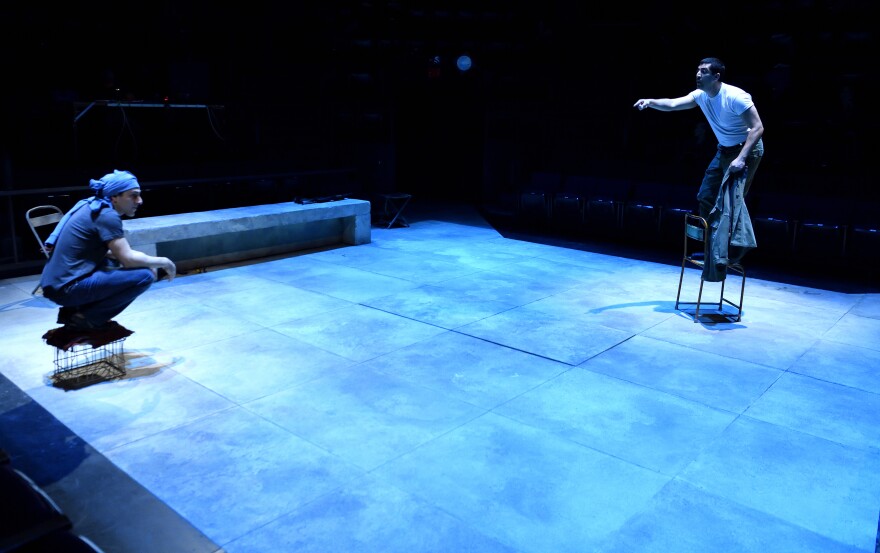The Humana Festival of New American Plays has brought to the stage, “The Corpse Washer,” adapted by Ismail Khalidi and Naomi Wallace from Sinan Antoon’s 2014 noveland directed by Mark Brokaw. The play is set in Iraq and follows the life of Jawad Kazim (Arash Mokhtar). Although Jawad is his father’s second son, he has been chosen to uphold the family’s tradition of serving as corpse washers: bathing the deceased as dictated by the Muslim faith. But Jawad wants to be an artist — a job for which there are limited opportunities in war-torn Baghdad.
In American society, we are rarely exposed to the narratives of the unnamed civilians whose lives have been decimated by the decades of war in the Middle East. It is so easy to turn off the TV, to scroll past the news story in our Facebook feed; anything to reinforce that what is happening Over There has little to do us with here. For this reason, “The Corpse Washer” feels voyeuristic. If it weren’t set against the backdrop of wars that have spanned generations, it could be a “Slice of Life”-style story, with very familiar elements: the rebellious son, the rigid father, the bond between men, the repressed mother who is subversive in her own way and the woman whose heart must be tamed.
But war has shaped this narrative and the lives of these characters. I left this play thinking about all the dreams unfulfilled, all the legacy destroyed. This is why representation matters and we need plays from different perspectives. As Jawad says in defense of his desire to create art, “Art changes the way you see yourself.” And it definitely changed the way I think about the price that must be paid for me to live this American life.
Mokhtar, wearing the same outfit nearly the entire play, successfully portrays Jawad from age 12 through adulthood through body language and dialogue alone. But he’s not alone in showing us he has the range. J. Paul Nicholas pulls double-duty as both Jawad’s father and Uncle Sabri. While Father is rigid and places his loyalty to legacy above all else, Uncle is the perfect foil as his Communist brother who flees to Berlin, also loyal to his ideologies and the one who lights the spark for the love of art in Jawad. Nicholas so fully embodies each of these characters you could have easily convinced me they were performed by two different actors. Also, Diana Simonzadeh, as Mother, and Abraham Makany, as Basim, bring great energy and humor to their roles.
Gus Cuddy in his tightly-fitted t-shirts brings loads of sexual energy to the theater as Jawad’s older brother Ammoury, but it is Mehry Eslaminia’s orgasmic lights-out, all vocal performance that was both unexpected and exceptional. In each of her scenes, Eslaminia was so magnetic as Reem, there were many instances that I wished we were following the arc of her life instead.
Even though I understand the internal and external factors that made it necessary for Jawad to make the choices he makes, I did feel unfulfilled by the ending of “The Corpse Washer.” And I wonder if this was done intentionally to leave audiences with the same emotional weight Jawad finds himself carrying throughout his entire life.
Minda Honey is on Twitter @mindahoney and Facebook at “Ask Minda Honey.”








